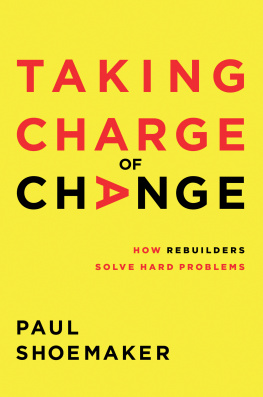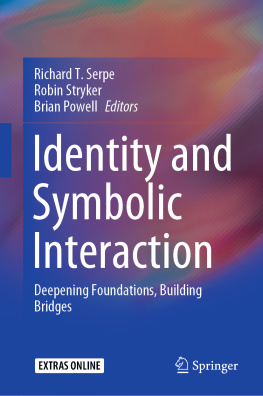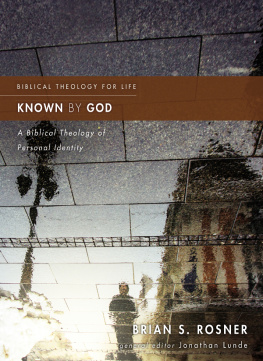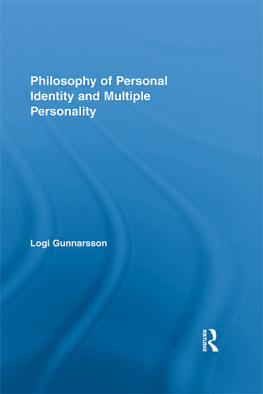2011
Continuum International Publishing Group
80 Maiden Lane, New York, NY 10038
The Tower Building, 11 York Road, London SE1 7NX
www.continuumbooks.com
Manuel Cruz, 2011
All rights reserved. No part of this book may be reproduced, stored in a retrieval system, or transmitted, in any form or by any means, electronic, mechanical, photocopying, recording, or otherwise, without the written permission of the publishers.
ISBN 978-1441-13843-9
Digital conversion katebroome.co.nz
Foreword
I can begin by saying that this book by Manuel Cruz, which is now finally available in Italian, is an excellent example of the ontology of the present. However, I do not know if the author will consider this a compliment, since it is more a way of trying to associate his work with a philosophical project he may not share, despite our ties of friendship. So let me say just this: Cruzs book, like few others I have read this year (one of them, in the field of philosophical narrative, is certainly Umberto Ecos Foucaults Pendulum ), is a text I would like to have written myself. I would just clarify, for the many readers who quite legitimately do not understand the term, what I mean by ontology of the present. I take the expression from Michel Foucault, who in one of his essays proposed a distinction between two kinds of philosophy: an analytics of truth, which engages in the study of the traditional questions of knowledge (science, logic etc.), and an ontology of the present. The latter is an expression that, I am not sure to what extent being faithful to Foucault, I use in a Heideggerian spirit to say that since metaphysics (the theory of being as being, of the stable and universal foundations of all entities) is finished, what philosophy can and must do is try to grasp the meaning of being in its present configuration, since being is not a stable structure (it will thus be reduced to an object, while it is the condition of any objective possibility occurring); it is history, the history of the configurations, or openings as Heidegger says, in which it gradually occurs.
But enough autobiography. It was only to state my admiration for, and harmony with, Cruzs work, whatever the difference of emphasis behind our basic positions. Although at the beginning I say this for readers with a more strictly continental training the text seems mostly interested in a rather detailed description of the term responsibility, as we read on we realize that at the heart of his analysis there are far vaster problems than the usual ones of analytic philosophy (or at least of the caricature of it we continentals often adopt to stir up controversy). We are reminded of (even if not explicitly referred to) problems similar to the ones we remember having found in the Sartre of the Critique of Dialectical Reason , or (though here the references are more specific) the Gadamer of Truth and Method ; and perhaps to the Heidegger of Being and Time ; the question of individual responsibility in our globalized communication and easy exchange mass society and, in different terms that Cruz has opportunely reviewed, the question of the hermeneutic circle or the authenticity of Heideggers theorized existence, or the problem of alienation and the meaning of history that Sartre talks about. As you will remember, in the Question of Method, which is the introduction to the Critique of Dialectical Reason , Sartre proposes the thesis that the alienation Marx speaks of must be read as the impossibility for the individual to understand and control the effects of his actions. In capitalist society, in which the product of labor is taken from the producers to become the capitalists profit, all individual actions, including those not directly productive of goods, take on a significance that the agent is not aware of and cannot control. The social order of capitalist domination expropriates the whole historical meaning of what he does, uses it for purposes that remain unknown and strange to the actor, just as the global meaning of what he is doing escapes the operator on the production line, in the framework of the division between manual labor and managerial tasks, and so forth. For Sartre that expropriation can only end when, in revolutionary action, the individual identifies himself with the group-in-fusion and finally appropriates, along with other things, the meaning of history at the very moment he does so. The trouble is that when the revolution is over, by a sort of principle of inertia, the unifying heat of the group tends to burn out: the hierarchy is reestablished and the division of labor returns, and so alienation does too. Sartres Critique of Dialectical Reason appeared at the beginning of the 1960s and seems like a synthesis of the revolutionary hopes of that decade and their defeat. It is in the climate of that failure (we cannot deny that for many people it was a sort of return to sanity) that we are still living today, and therefore also the reason the issues Cruz discusses in this book are current and urgent. In the meantime, the reasons for what to Sartre seemed a desperate relapse into alienation have revealed themselves with increasing clarity; at least in the sense that the mass society, developing toward the present condition of a thrusting globalization, makes the division between what we know about the meaning of our actions and their effective scope in the overall picture ever more dramatic. Not only that: more or less paradoxically, what Cruz calls nostalgia for the horizon has been heightened enormously, whereas our power of intervention in what happens seems to have shrunk at least in proportion to the amount of information we are supplied with. We might think that, in the conditions of information in real time we live in (and despite the manipulation the news is subjected to by a wide range of interests), we citizens of the new millennium must be in ideal conditions to identify the immediate and the general meaning of our actions. On the other hand, we know very well that our very alienation from them increases our neurosis: the use of tranquilizers is spiraling every year and not only through the fault of advertising by the pharmaceutical companies. It is an imbalance similar to the one biologists have pointed out behind the predictive capacity of diagnostic medicine and its therapeutic capacity: you can know that there is every possibility of developing a cancer in the next few years but you do not know how to prevent it.
Obviously, in light of that, Cruzs discussion recalls so many other subjects of the philosophy of the last two centuries, beginning with the Nietzsche of the second of his Untimely Meditations , the one On the Use and Abuse of History for Life. In it he had already described contemporary man as sick with the illness of history, a kind of indigestion of the notions of his past and his current world that cannot be truly digested and so weigh on the stomach, foiling any initiative. The excess of historiography kills the capacity to make history.
In many ways that sickness is ours too, that of democratic societies, in which we wonder with increasing frequency if there is really anything to be said about collective life. The so-called crisis of the parties, an easily recognizable version of the relapse into the inert practice Sartre spoke about, is just one aspect of the general neutralization through which we all feel responsible (for the AIDS epidemic in Africa, for hunger in the world, for environmental degradation, etc), but we soon quiet our conscience with one of many symbolic initiatives, such as the classic rock concert, the profits of which go to any of the good causes popularized by the media In that framework, what Cruz observes about responsibility by omission is decisive. And sins of omission may be the most frequent and difficult to recognize, and the expression taking charge which gives the book its title is highly appropriate to indicate the virtue that should save us from that sin.












